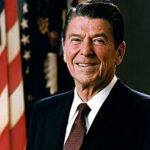The Iran-Contra Affair emerged as one of the most damaging political scandals of the 1980s. Reagan’s administration secretly sold weapons to Iran’s revolutionary government. Officials hoped to secure the release of American hostages held in Lebanon.
The Secret Arms Sales
The operation violated Reagan’s own public stance against negotiating with terrorists. National Security Council staff orchestrated the covert weapons transfers. Lieutenant Colonel Oliver North played a central role in coordinating sales. The administration sold anti-tank missiles and other military equipment through intermediaries. ⚠️
Illegal Contra Funding
Profits from Iranian arms sales were illegally diverted to Nicaraguan Contras. Congress had explicitly banned military aid to the anti-communist rebels. The Boland Amendment prohibited such funding from 1982 to 1986. Reagan’s team circumvented congressional oversight through creative financing schemes. 💰
The Scandal Breaks
Lebanese magazine Al-Shiraa first exposed the Iran-Contra Affair in November 1986. Attorney General Edwin Meese confirmed the illegal Contra funding connection. Reagan initially denied knowledge of the diversion of funds. The revelation sparked immediate congressional investigations and public outrage. 📊
Impact:
The Iran-Contra Affair fundamentally damaged Reagan’s presidency and raised constitutional questions about executive power. Public approval ratings plummeted as details emerged about the covert operations.
Congressional Investigations
Joint congressional committees conducted televised hearings throughout 1987. Oliver North’s testimony became a national spectacle and political theater. Investigators uncovered extensive evidence of administration wrongdoing and cover-ups. The final report criticized Reagan for failing to fulfill his constitutional duties. 🔥
Legal Consequences
Independent counsel Lawrence Walsh indicted fourteen administration officials for various crimes. Several high-ranking officials received criminal convictions for their roles. National Security Advisor John Poindexter and Oliver North faced felony charges. President George H.W. Bush later pardoned six Iran-Contra defendants in 1992.
Constitutional Crisis
The scandal highlighted tensions between executive power and congressional oversight. Critics argued Reagan violated the separation of powers principle. The affair demonstrated how covert operations could undermine democratic accountability. Congress subsequently strengthened intelligence oversight mechanisms to prevent future abuses. 📉
International Ramifications
America’s credibility suffered significant damage in the Middle East region. The secret arms sales contradicted official anti-terrorism policies and rhetoric. Allied nations questioned America’s commitment to stated foreign policy principles. 🌍
